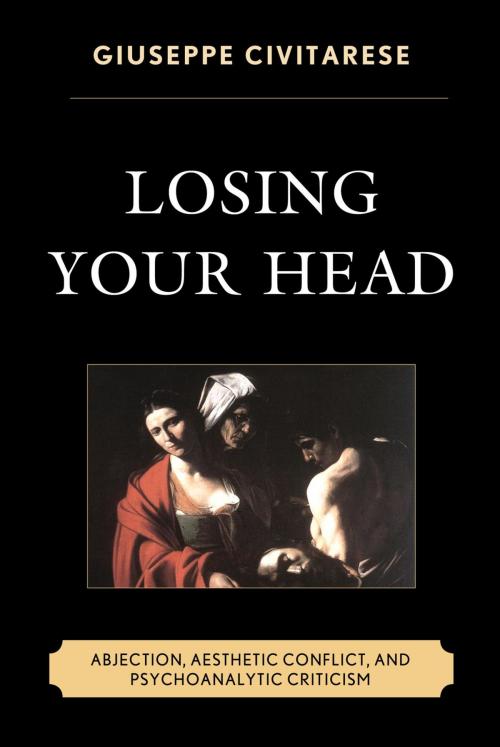Losing Your Head
Abjection, Aesthetic Conflict, and Psychoanalytic Criticism
Nonfiction, Health & Well Being, Psychology, Psychoanalysis| Author: | Giuseppe Civitarese, Sara Boffito, Francesco Capello, Giuseppe Civitarese | ISBN: | 9781442239494 |
| Publisher: | Rowman & Littlefield Publishers | Publication: | February 10, 2015 |
| Imprint: | Rowman & Littlefield Publishers | Language: | English |
| Author: | Giuseppe Civitarese, Sara Boffito, Francesco Capello, Giuseppe Civitarese |
| ISBN: | 9781442239494 |
| Publisher: | Rowman & Littlefield Publishers |
| Publication: | February 10, 2015 |
| Imprint: | Rowman & Littlefield Publishers |
| Language: | English |
Losing Your Head: Abjection, Aesthetic Conflict, and Psychoanalytic Criticism looks at the subject of beheading in art as a trope of the destruction of the mind. This book discusses both psychoanalytic theory and art criticism. It addresses critics, readers, and spectators interested in the keys of interpretation that psychoanalysis can offer, and analysts who are curious to know if artists can help them refine the tools they use every day. It asks whether artists have something to say about the concepts of reverie and negative reverie or about change as aesthetic transformation, and about aesthetic experience as a paradigm of what is most true and most profound in analysis. Why write about beheading? Many art galleries feature paintings of heroines performing this cruel act: Delilah, Salome, Judith, Yael, and others. At the antithesis to this, there is another theme to be found in painting that consistently garners attention: namely, the so-called “Sacred Conversation,” in which the Madonna holds a small child in her lap and their gazes cross. The first scene depicts how a mind is destroyed, the second how it is born. Losing Your Head analyzes well-known artwork from classical literature, cinema, and contemporary art to enhance psychoanalytic understanding.
Losing Your Head: Abjection, Aesthetic Conflict, and Psychoanalytic Criticism looks at the subject of beheading in art as a trope of the destruction of the mind. This book discusses both psychoanalytic theory and art criticism. It addresses critics, readers, and spectators interested in the keys of interpretation that psychoanalysis can offer, and analysts who are curious to know if artists can help them refine the tools they use every day. It asks whether artists have something to say about the concepts of reverie and negative reverie or about change as aesthetic transformation, and about aesthetic experience as a paradigm of what is most true and most profound in analysis. Why write about beheading? Many art galleries feature paintings of heroines performing this cruel act: Delilah, Salome, Judith, Yael, and others. At the antithesis to this, there is another theme to be found in painting that consistently garners attention: namely, the so-called “Sacred Conversation,” in which the Madonna holds a small child in her lap and their gazes cross. The first scene depicts how a mind is destroyed, the second how it is born. Losing Your Head analyzes well-known artwork from classical literature, cinema, and contemporary art to enhance psychoanalytic understanding.















